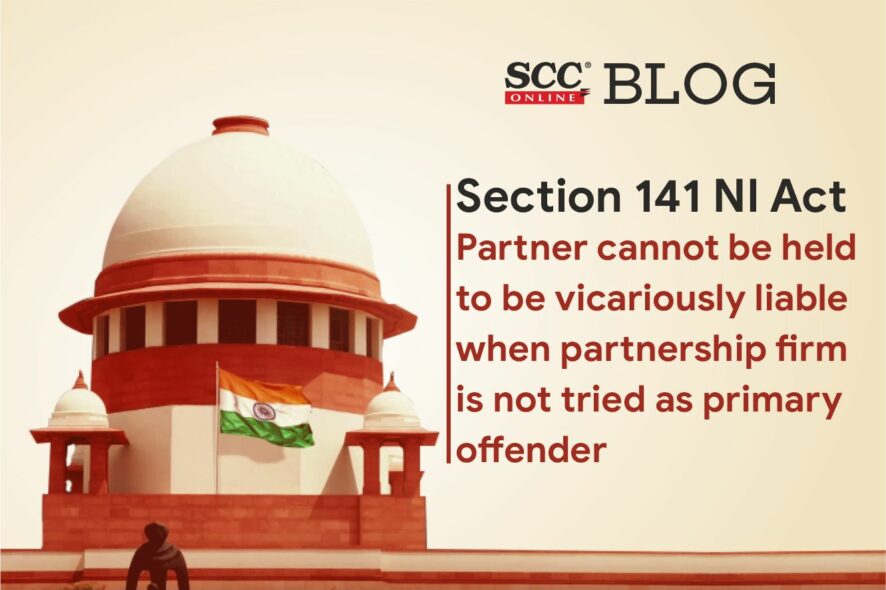Supreme Court: Explaining the law on vicarious liability under the Negotiable Instruments Act, 1881, the bench of Ajay Rastogi and Sanjiv Khanna*, JJ has held that while Section 141 of the NI Act extends vicarious criminal liability to officers associated with the company or firm when one of the twin requirements of Section 141 has been satisfied, which person(s) then, by deeming fiction, is made vicariously liable and punished, such vicarious liability arises only when the company or firm commits the offence as the primary offender.
The Court explained that the provisions of Section 141 NI Act impose vicarious liability by deeming fiction which presupposes and requires the commission of the offence by the company or firm. Therefore, unless the company or firm has committed the offence as a principal accused, the persons mentioned in sub-section (1) or (2) would not be liable and convicted as vicariously liable.
Sub-section (2) to Section 141 of the NI Act does not state that the persons enumerated, which can include an officer of the company, can be prosecuted and punished merely because of their status or position as a director, manager, secretary or any other officer, unless the offence in question was committed with their consent or connivance or is attributable to any neglect on their part. The onus under sub-section (2) to Section 141 of the NI Act is on the prosecution and not on the person being prosecuted.
It was further observed that the Partnership Act, 1932 creates civil liability. Further, the guarantor’s liability under the Contract Act, 1872 is a civil liability. The Partner may have civil liability and may also be liable under the Recovery of Debts Due to Banks and Financial Institutions Act, 1993 and the Securitisation and Reconstruction of Financial Assets and Enforcement of Security Interest Act, 2002. However, vicarious liability in the criminal law in terms of Section 141 of the NI Act cannot be fastened because of the civil liability.
“Vicarious liability under sub-section (1) to Section 141 of the NI Act can be pinned when the person is in overall control of the day-to-day business of the company or firm. Vicarious liability under sub-section (2) to Section 141 of the NI Act can arise because of the director, manager, secretary, or other officer’s personal conduct, functional or transactional role, notwithstanding that the person was not in overall control of the day-to-day business of the company when the offence was committed. Vicarious liability under sub-section (2) is attracted when the offence is committed with the consent, connivance, or is attributable to the neglect on the part of a director, manager, secretary, or other officer of the company.”
In the case at hand, even the Bank of Baroda had admitted that the appellant had not issued any of the three cheques, which had been dishonoured, in his personal capacity or otherwise as a partner. Hence, in the absence of any evidence led by the prosecution to show and establish that the appellant was in charge of and responsible for the conduct of the affairs of the firm, the conviction of the appellant had to be set aside.
“The appellant cannot be convicted merely because he was a partner of the firm which had taken the loan or that he stood as a guarantor for such a loan.”
[Dilip Hariramani v. Bank of Baroda, 2022 SCC OnLine SC 579, decided on 09.05.2022]
*Judgment by: Justice Sanjiv Khanna






